Business
World Bank lists Nigeria among top 10 global reformers
Published
8 years agoon
By
Olu Emmanuel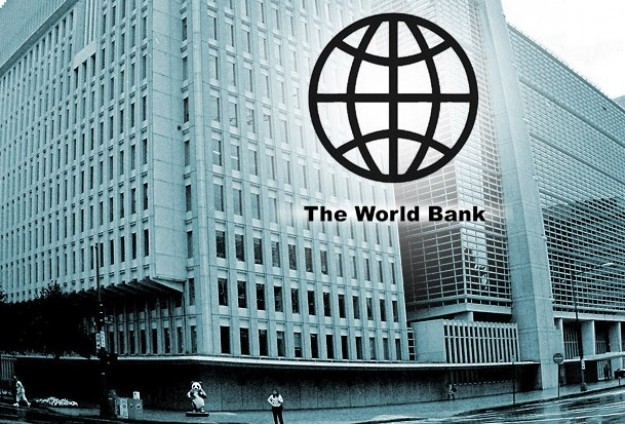
Nigeria has moved up 24 places to 145th in the World Bank’s ‘Doing Business’ report published today, and for the first time the country is recognized as one of the top 10 most improved economies in the world.
The World Bank Doing Business project provides objective measures of business regulations and their enforcement across 190 economies worldwide.
Reacting to the development, Vice President Yemi Osinbajo, SAN, said.
“I welcome Nigeria’s improved performance. We are one of the top ten reforming economies in the world in 2017. After a decade-long decline in Nigeria’s rankings, last year the Government recorded a modest increase. This year, Mr President set us an ambitious target of moving up twenty places in the rankings – I am delighted that we have exceeded his goal.
“Improving the business environment is at the heart of the Buhari Administration’s reform agenda. We are reinforcing our economic turnaround by a vigorous and active implementation of the Economic Recovery and Growth Plan (ERGP) so businesses operating in Nigeria can thrive and be competitive globally.
“For the first time, coordinated efforts across various levels of governments have been undertaken to make it easier to do business in Nigeria. I commend all stakeholders who worked with us to achieve this significant result, particularly the National Assembly, Lagos and Kano State Governments, and the private sector.”
The World Bank highlighted five reforms making it easier to do business in Kano and Lagos, the two cities covered by the report in Nigeria over the course of last year:
1. Starting a Business,
2. Dealing with Construction Permits
3. Registering Property
4. Getting Credit, and
5. Paying Taxes.
In the area of company registration, the Corporate Affairs Commission has moved to offer online registration and introduced new features such as electronic stamping of registration documents. Thus, entrepreneurs have been able to register their businesses much faster, within 24-48 hours, thereby saving cost and time
ALSO SEE: Pressure mounts on Buhari to do more to sacked SGF
Getting construction permits and registering property in both Lagos and Kano States have become more transparent and easier for businesses with the online publication of all relevant regulations, fee schedules and pre-application requirements online.
Getting access to credit is now easier and Nigeria is placed 6th in the world on this indicator. The Government recorded a significant success by collaborating with the National Assembly to pass two new Acts, the Secured Transactions in Movable Assets Act 2017 and the Credit Reporting Act 2017, thereby strengthening the legal framework for access to credit for SMEs across the country – an important requirement for the success of SMEs.
Finally, it has become easier to pay taxes in Nigeria because taxpayers can file tax returns at the nearest Federal Inland Revenue Service (FIRS) office, and electronic payment and filing are gradually gaining acceptance.
Vice President Osinbajo continued,
“Our focus remains firmly on ensuring that SMEs operating in Nigeria find it easier to do business. Our ultimate success will be the testimonials received from businesses all across the country. However, this report endorses the direction that we have been taking to improve the ease of doing business in Nigeria over the last 12-18 months. Although we are beginning to get some positive feedback, we still have a lot of work to do before the full impact of our reforms are felt by all Nigerians.
“Some of our critical ongoing reforms include a new sub-national ‘ease of doing business’ project being implemented in conjunction with all the States and the FCT to replicate similar reforms across the country. We are again collaborating with the National Assembly to deliver an Omnibus Bill to jointly furnish a more business friendly legal framework for Nigerian businesses in the future. Furthermore, the Federal Executive Council has approved the concessioning of our major international airports, which will be fast tracked to enable easier movement of persons.
ALSO SEE: How unregistered SIM cards aided kidnappings, others – Buratai
“We are also nearing the implementation stage of our National Trading Platform to ensure our cross-border trading is more efficient, while collaborating with other countries to safeguard our security. This policy will also be supported by ongoing reform efforts to simplify trading within Nigeria, whether that be the ease of trade in goods, regulatory approvals or the protection of intellectual property.”
BACKGROUND INFORMATION
On September 27, the second 60-day National Action Plan (NAP 2.0) was approved by an expanded meeting of the Presidential Enabling Business Environment Council (PEBEC). NAP 2.0 has over 60 priority initiatives targeted to be attained by December 1 this year.
The plan covers 11 areas this time, including new areas such as Enforcing Contracts, Simplifying the Procurement Process, and Trading Within Nigeria. It is hoped that a successful implementation of the NAP 2.0 would deliver significant benefits especially for SMEs including the fact that it would make 1.3 million MSMEs eligible to do business with government, bring about 75% reduction in average clearance time for foreign travelers, 60% reduction in time to get electricity, 75% reduction in time to register business premises and 50% reduction in time for filing corporate income taxes.
The PEBEC, was established by His Excellency, the President in July 2016, with a mandate to sustainably and progressively make Nigeria an easier place to do business. The PEBEC, is chaired by His Excellency, the Vice President, with the Hon Minister of Industry, Trade & Investment as Vice Chair. Other PEBEC members include 10 Honourable Ministers, the Head of the Civil Service of the Federation and the CBN Governor.
In 2017 the membership was expanded to include the Deputy Senate Majority Leader as representative of the National Assembly, representatives of Lagos and Kano State Governments as well as the Private sector. The Enabling Business Environment Secretariat (EBES) supports PEBEC in implementing its reform mandate.
Since October 2016, the PEBEC has embarked upon a number of reform efforts including: the concluded 60-day National Action Plan (NAP 60) which was a short term intervention targeted at accelerating specific reforms, the operationalization of the Executive Order on the Promotion of Transparency in the Business Environment (EO1); and the improvements of business processes, regulations for Trading within Nigeria as well as a new subnational reforms project in collaboration with State Governments.
While the initial NAP 60 had a 70% performance rate, the final results of NAP 2.0 will be announced by the PEBEC in December, and the current World Bank reform cycle will end in May 2018.
You may like
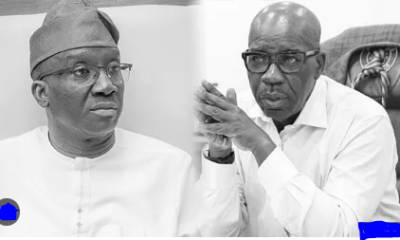

Obaseki slams Okpebholo’s allegations, Urges focus on Governance
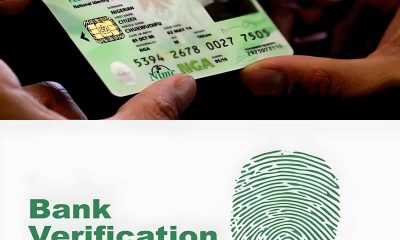

Amid challenges, World Bank gives Nigeria’s NIN registration pass mark


Cash transfers can save Nigerians from falling deeper into poverty – World Bank
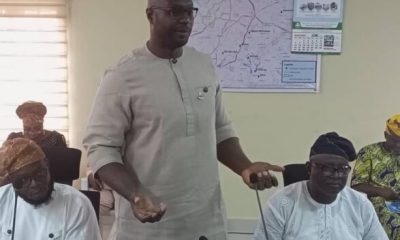

Oyo State Government seeks World Bank’s support


Group scolds World Bank over subsidy crisis
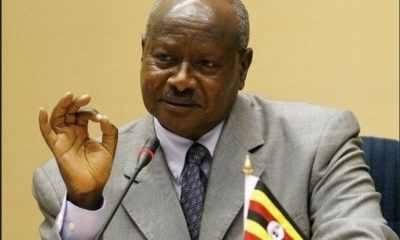

Museveni slams World Bank for freezing loans over anti-gay law
Trending

 Health7 days ago
Health7 days agoDeclassified CIA memo explored concealing mind-control drugs in vaccines

 Crime7 days ago
Crime7 days agoSenior police officers faces retirement after Disu’s appointment as acting IGP

 Comments and Issues1 week ago
Comments and Issues1 week ago20 Critical Fixes to Save Nigeria’s Democracy from Electoral Fraud

 Latest1 week ago
Latest1 week agoICPC yet to respond to El-Rufai’s bail request as arraignment date looms

 Comments and Issues1 week ago
Comments and Issues1 week agoGovernance Before Guns: Why Institutional Coherence Determines Security Outcomes

 Football1 week ago
Football1 week agoMartínez ruled out of Everton clash with calf injury

 Comments and Issues1 week ago
Comments and Issues1 week agoWho owns Abacha’s loot? Nigeria and the fight for the people’s money
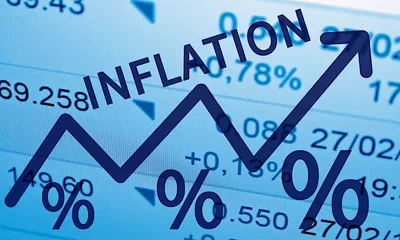
 Comments and Issues1 week ago
Comments and Issues1 week agoShooting down inflation and rising poverty

